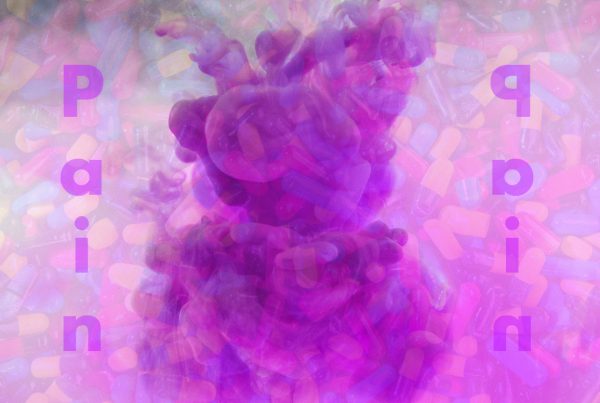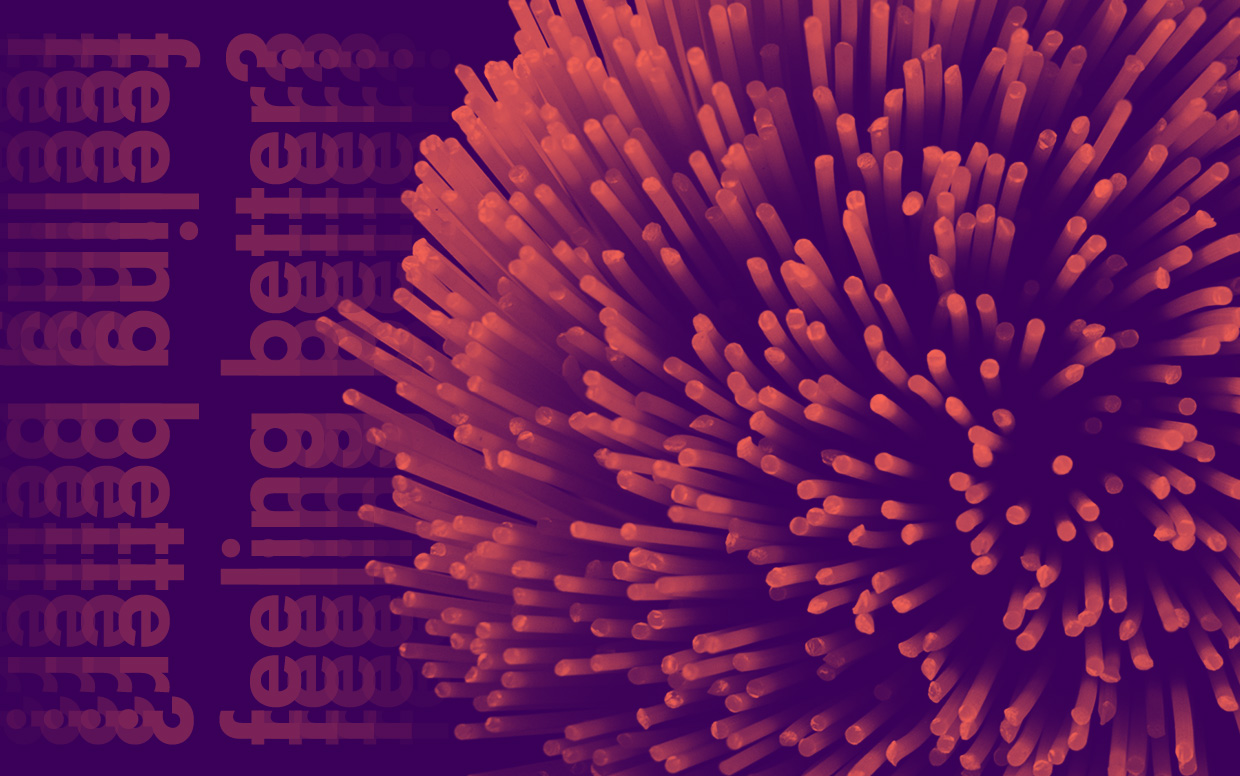Table of Contents
Anticonvulsants are one of the fundamental medical solutions prescribed for vulvodynia treatment.
They might be an option worth exploring – especially if you describe your pain as “shooting or stabbing”. This might indicate that you suffer from neuropathic pain, meaning that the cause of your chronic vulvar pain stems from a damaged nerve.
#1: What Are Anticonvulsants?
Anticonvulsants commonly known as antiepileptic or antiseizure drugs are medications designed to treat people with epilepsy (seizure disorders).
#2: How Do Anticonvulsants Work?
Normal brain function is based on communication between millions of brain nerve cells called neurons. To communicate, neurons send to each other chemical and electrical signals that can excite or inhibit their function.
A seizure comes when there is an imbalance of excitatory and inhibitory messaging – when neurons fire off in an abnormal fashion.
Anticonvulsants alter seizures by suppressing the excessive rapid firing of neurons during convulsions – preventing a seizure from spreading in the brain.
#3: Anticonvulsants for Vulvodynia
Anticonvulsants also have nerve calming qualities and are effective in treating burning, stabbing or shooting pain caused by damage or over-sensitized nerves (neuropathic pain).
Therefore, if the nerve malfunction, due to, for example, injury, surgery or diseases, is the underlying cause of your chronic vulvar pain then your pain might be altered with anticonvulsants.
Anticonvulsants seem to interfere with the overactive transmission of pain signals by raising the threshold for the amount of stimuli needed for the nerve to fire. And at the same time increasing pain threshold.
However, the exact pain relieving mechanism of anticonvulsants is not known.
Nevertheless, the recent conclusions from more than two decades of research in cooperation with NVA (National Vulvodynia Association) have proven that anticonvulsants are not more effective than placebos in treating the localized type of vulvodynia called vestibulodynia (vulvar vestibulitis).
#4: Types of Anticonvulsants for Vulvodynia Treatment
There are several anticonvulsants used to alter chronic vulvar pain:
- Gabapentin (Neurontin) – the most popular
- Pregabalin (Lyrica) – the most popular
- Carbamazepine (Tegretol, Atretol, Capitol, Epitol)
- Topiramate (Topamax)
- Oxcarbazepine
#5: Anticonvulsants Dosage
The most popular anticonvulsants for vulvodynia are Gabapentin and Pregabalin.
Anticonvulsants are administered in the form of a tablet taken by mouth or topically.
Oral use
Orally, they are started with low doses increased gradually, to help prevent side effects. The maximum dose for vulvodynia is:
Gabapentin Study
A large retrospective review of 152 women with generalized vulvodynia, showed that 64% had a least an 80% resolution of their pain while using Gabapentin.
Resource: https://www.ncbi.nlm.nih.gov
Topical use
Topically, Gabapentin is available in the compounded form of a concentration of 2/4/6% in a neutral base.
Anticonvulsants don’t work immediately. Response to treatment can take up to several weeks.
Additionally, low initial dose benefits might not be felt much at the beginning. It is recommended to give the medication a good trial period before changing.
#6: Best Practices for Anticonvulsants Uses
#7: Anticonvulsants Side Effects
Each anticonvulsant acts on the brain in a slightly different way and tends to produce different side effects. Adverse effects also vary from person to person and usually lessen when the body gets used to the drugs.
A topical version of anticonvulsants for vulvodynia produces fewer side-effects because of its lower systematic absorption, meaning that your body absorbs less of it.
However, there are generally three types of antiepileptic medication side effects.
First type of side effects
Common side effects which can affect you when you’re starting medication, your dose is increased rapidly or it is too high, like:
- Abdominal pain
- Digestive problems (indigestion, nausea, diarrhea, constipation, vomiting)
- Dizziness
- Fatigue
- Sleepiness, drowsiness, and tiredness
- Irritability and nervousness
- Lightheadedness
- Dry mouth
- Headaches
- Swollen limbs
- Weight gain or loss
- Anxiety or mood changes
- Cognitive problems with:
- Thinking
- Remembering
- Paying attention or concentrating
- Finding the right words
- Visual changes like double vision
- Tremors
- Sensation similar to being drunk, unsteadiness
- Muscle pain
Second type of side effects
More unusual, however very serious side effects that occur in some people like:
- Allergic reactions:
- Rashes, hives, blisters, swellings, fever
- Blood problems:
- A serious drop in the number of white blood cells in your body needed to fight infection
- A serious drop in the number of platelets in your body needed to control bleeding
- Liver and pancreas problems including organ damage
- Fever
- Suicidal thoughts
- Violent behavior, aggressiveness
- Depression
- Anxiety
- Panic attacks
- Mania
- Seizures
Third type of side effects
Idiosyncratic side effects that are unique to you (no one else has them).
#8: Anticonvulsants Interactions
IMPORTANT: Let your healthcare professional know if you are taking any other prescription and non-prescription medications, illegal, recreational, herbal, nutritional and dietary drugs. Some truly unpleasant side effects can be intensified.
Each particular anticonvulsant, like Gabapentin or Pregabalin interact with slightly different drugs.
- Alcohol and other stimulants such as marijuana:
- They might increase dizziness, drowsiness and difficulty concentrating
- Herbal remedies such as St John’s Wort (Hypericum perforatum):
- It may affect the level of anticonvulsants in the blood and can increase the risk of seizures
- Antihistamine medicine
- Cold medicine
- Pain medication including opiates
- Other antidepressants
- Certain types of fruit such as grapefruits:
- It can interact with anticonvulsants
- Birth control pills:
- Anticonvulsants can prevent contraception pills from working by increasing their breakdown and metabolism of estrogen and progesterone in the liver
- Tranquilizers, sedatives, sleeping pills or drugs used to treat anxiety:
- They can also worsen dizziness and sleepiness
- Medication for obesity
- Certain medicine used during surgery, dental procedures, or emergency treatment
#9: Anticonvulsants Contraindications and Warnings
1. If you are pregnant (or planning to get pregnant):
There haven’t been enough studies to show how anticonvulsants exactly affect an unborn child, however, research in animals has shown an adverse effect to the fetus when the mother takes anticonvulsants. Therefore, this medication should only be used when the potential benefit justifies the potential risk.
Polytherapy (use of more than one medication) increased changes of congenital malformation in newborns.
Some registered birth defects after using anticonvulsants include:
- Growth retardation
- Microcephaly (a small head)
- Deformation of the face and finger (anticonvulsant embryopathy)
For more information, please check The NAAED Pregnancy Registry. This registry tracks the effects of anticonvulsants on pregnancy.
2. If you breastfeed:
Some anticonvulsants can pass into breast milk and cause serious side effects in a breastfed child. You may need to decide whether to find an alternative to this drug, stop breastfeeding or cease the medication.
Please talk to your doctor about possible risks to you and your baby, in order to weigh these risks against the benefits of using anticonvulsants.
3. If you have kidneys problems:
Your body processes anticonvulsants slower than what the average rate is and it might not be able to clear the drug effectively from your system. This can dangerously increase the drug level in your body, intensifying adverse effects.
4. If you have allergies (foods, dyes, preservatives, or other substances):
This medication may contain inactive ingredients, which can cause allergic reactions.
5. If you have diabetes:
Anticonvulsants may affect your blood sugar level. Monitor your urine and blood tests. Pay attention to your skin and contact your doctor in case of any sores, redness or skin problems.
#10: Anticonvulsants Discontinuations
Anticonvulsants can produce withdrawal symptoms if you suddenly stop taking them or miss several doses of them.
In case you stop the medication, you can minimize these adverse symptoms by tapering down your dosage.
The most common withdrawal symptoms include:
- Nausea, vomiting, and diarrhea
- Irritability and anxiety
- Headaches
- Sleep problems
- Dizziness
Conclusion
In this post, you can find general information about anticonvulsants used for vulvodynia treatment:
- What anticonvulsants are and how they work
- How and which anticonvulsants can help with your chronic vulvar pain
- Initial guidelines of how to take anticonvulsants
- What types of side effects you might experience, including withdrawal symptoms and what you can do about them
- Possible interactions, contraindications, and warnings
Please don’t feel discouraged if you feel little to no relief while taking anticonvulsants or if your pain will come back after the discontinuation of the medication.
Please keep in mind that anticonvulsants like other types of traditional medications might not treat nor heal the underlying root cause of your vulvar pain. Rather than temporarily eliminating and curing evidence of the illness or masking the symptoms. They also don’t heal your body.
Please remember that anticonvulsants are definitely not the only solution available for vulvodynia. There are still other medical and natural remedies that you can explore.
Did you find this post helpful? What other types of information would you like me to share with you? Have you ever taken anticonvulsants? Did anticonvulsants help your symptoms?
Share with me all of your thoughts, experiences, and questions in the comments below! You can also ask me anything directly on FB.
Disclaimer
My goal is to provide you with the most relevant and current information that is factually correct, comprehensive and up-to-date.
However, the drug information provided herein is subject to changes and is not intended to cover all possible:
- Uses
- Dosage indications and best practices for usage
- Side effects
- Drug interactions
- Contraindications and warnings
- Drug withdrawal symptoms
Additionally, each person is different and may respond differently to the drug.
Please also bear in mind, that this article should not be used as a substitute for the knowledge and expertise of a doctor or other licensed healthcare professionals. Please before taking any medication, consult it with your health provider, who knows your medical history.
Resources
- http://www.obgyn.net/pelvic-pain/clinical-management-vulvodynia
- https://www.webmd.com/pain-management/qa/what-are-anticonvulsants
- https://en.wikipedia.org/wiki/Anticonvulsant
- https://www.mayoclinic.org/diseases-conditions/peripheral-neuropathy/in-depth/pain-medications/art-20045004
- https://medical-dictionary.thefreedictionary.com/Anticonvulsant+Drugs
- https://www.verywellmind.com/anticonvulsants-for-treatment-of-mania-4006598
- https://www.sciencedirect.com/topics/neuroscience/anticonvulsants
- https://emedicine.medscape.com/article/1187334-overview
- https://www.epilepsysociety.org.uk/how-anti-epileptic-drugs-work#.XBZABxNKjOR
- https://www.sciencedirect.com/topics/medicine-and-dentistry/anticonvulsant
- https://academic.oup.com/bjaed/article/5/1/18/339859
- https://www.verywellhealth.com/anti-seizure-medications-for-chronic-pain-2564494
- https://www.webmd.com/pain-management/explore-seizure-meds
- https://www.nps.org.au/australian-prescriber/articles/the-use-of-anticonvulsants-for-neuropathic-pain
- https://www.ouh.nhs.uk/patient-guide/leaflets/files/5936Panticonvulsantdrugs.pdf
- http://www.jaypeejournals.com/eJournals/ShowText.aspx?ID=10105&Type=FREE&TYP=TOP&IID=773&Value=40&isPDF=YES
- https://www.acog.org/Clinical-Guidance-and-Publications/Committee-Opinions/Committee-on-Gynecologic-Practice/Persistent-Vulvar-Pain
- https://www.epilepsy.com/learn/treating-seizures-and-epilepsy/seizure-and-epilepsy-medicines/side-effects
- https://www.woodlandhillspharmacy.com/topical-treatment-vulvodynia/
START YOUR JOURNEY TOWARDS HEALING
Because life’s too short. And you deserve to be healthy + happy.





